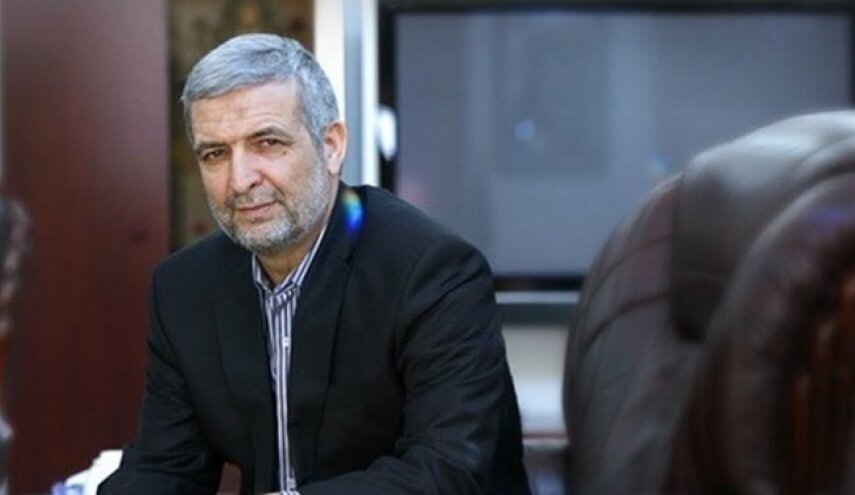Iran to form joint committee with Taliban to prevent border clashes: envoy

TEHRAN – Hassan Kazemi Qomi, the Iranian special envoy for Afghanistan, has said that a meeting was held with the Taliban defense officials in the wake of the recent border clashes during which it was agreed to form a joint committee to prevent the recurrence of border clashes.
Following a border clash in the Hirmand region, a meeting was held on Sunday between the representative of the Islamic Republic of Iran and the Ministry of Defense of the Taliban government.
“The Ministry of Defense of the Taliban government, in contact with the border guard forces in Afghanistan, instructed them to avoid clashes, and included on the agenda the formation of a joint committee to avoid the repetition of such practices,” Kazemi Qomi stated.
On Sunday evening, a border clash in the Hirmand border area took place between Iran and Afghanistan, according to press reports.
In this regard, the governor of the Hirmand district said, “A clash took place between the Iranian border guards and the border guards of the Taliban authority in the Shallak area of the Hirmand district.”
The governor indicated that the Taliban forces crossed the borders and the Iranian border guards responded as necessary, and then the Taliban responded, but there were no casualties, according to Al Alam.
A security official in Nimroz province told Fars News Agency that the Taliban forces were patrolling in an area close to the border with Iran, and they clashed with the border guards of the opposite side, and the two sides exchanged fire.
“In this clash, a member of the Taliban was killed and another wounded, and some residential areas were damaged,” he added.
As for the reason for the clash, the security source explained that the Iranian border guards announced that the area in which the Taliban carried out their patrol is part of Iran's territory, and the Taliban forces had no right to enter it.
Iran's Deputy Interior Minister for Security Affairs Seyed Majid Mir-Ahmadi spoke about the details of the clashes that erupted at noon on Sunday in the border region of Hirmand in the southeastern province of Sistan-Baluchestan between Iranian border guards and Taliban forces.
Mir-Ahmadi pointed out in a media statement that “this development was contained with wisdom and knowledge by the Iranian border guards,” demanding the Afghan side to abide by the prevailing border standards.
He explained that the reports received on Saturday indicated that a small number of Afghan border forces took provocative moves in the Zahak area, ignoring the accepted geographical and border standards.
The deputy interior minister added that the Iranian border guards were able to contain this situation and prevent further tension, thus ending the clashes that occurred on Sunday.
Mir-Ahmadi expressed regret for the repeated provocative moves by the Afghan border forces in the same area and even shot at the Iranian border guards there, which led to a reciprocal response on the part of the Iranian forces.
“At half past one this afternoon [Sunday], after clashes that lasted for an hour, this development was brought under control and the situation was contained by the border forces of the Islamic Republic of Iran as well,” he continued.
While noting the need for Afghan forces to abide by border and geographic standards, the Iranian deputy interior minister said, “Afghan officials had been previously warned not to allow similar incidents to occur that might lead to unnecessary tensions on both sides.”
Iranian Foreign Minister spokesman Nasser Kanaani said on Monday that the recent clashes derived from Taliban forces’ unfamiliarity with border issues.
“Our understanding of the events of the past two days on the common border with Afghanistan is that these events seem to be caused by the lack of proper attention and knowledge of the Afghan border guards about the common border lines and the known border lines of the two countries,” Kanaani pointed out.
Speaking at a weekly presser, Kanaani added, “Last year, we created a security wall to deal with traffickers and drug trafficking. In some of these areas, it seems that the Afghan border guards are not aware of the border situation and do not have accurate knowledge of border areas and lines. And some of their actions and movements cause misunderstandings and sometimes border clashes.”
He noted, “Iran's border guard forces closely monitor the border movements along the borders of the region. We expect the authorities of Afghanistan to train their border guard forces more carefully. And they should be familiar with the border lines and know their duties so that we do not witness the repetition of such incidents.”
